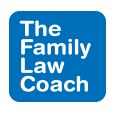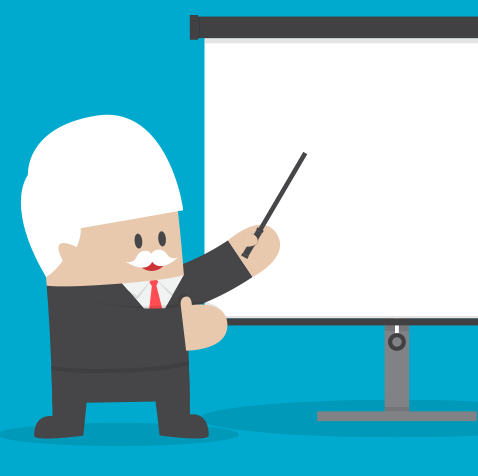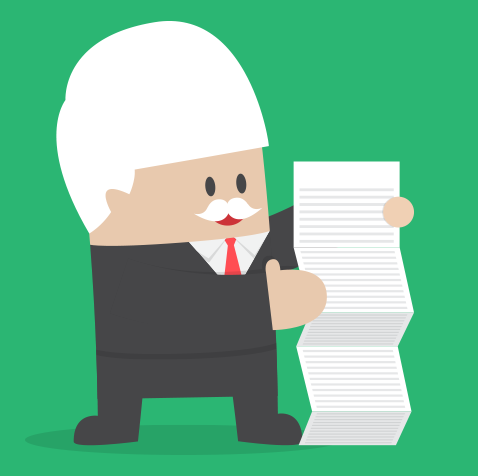About Us
What’s Legal Coaching and How Can It Work For You?
Welcome to the world of the family law self-rep.
You’re in family court and you can’t afford, or you do not want to hire a lawyer to take over your case. You know the order you want the judge to make, but aren’t sure how to tell your story to the judge so you can get it.
If any of these describe you – you need legal coaching
You’ve never been in family court before and aren’t sure what’s going to happen, when.
You’re not sure if you’ve filed the right forms, or if you completed them in the strongest way.
You’re not great at speaking in public.
Your language or speaking style isn’t as clear as you’d like.
You know your facts, but don’t know how to organize them in the way the judge wants to hear them.
The other side has a lawyer and you get a bit intimidated when dealing with him or her.
You worry that you’ll leave something important out because you’re nervous, or uncertain what the judge regards as important that you don’t.
There are more people in family court like you without lawyers, than there are people who have them.
Statistics show that there are between 54 – 80% of people in Ontario’s family courts who don’t have lawyers. Most think it’s in the higher range. These are self-reps who are trying to do their best in a system that wasn’t designed for them and that favours lawyers over non-lawyers.
Just like anything else, if you’ve never done it before, you’re not sure how to do it well.
And since family court deals with matters that are very important to you, it’s important that you get it right. That’s what legal coaching – or “coaching” – provided by your Coach lawyer is designed to do.
Obviously, the best way to present your case in court is to have a lawyer take over your file. But if you can’t afford, or don’t want, to hire a lawyer for full service representation, you need to find a way to help balance the playing field. One option is to win a lottery and get enough money for traditional legal assistance.
But if that’s not likely, there are three other things you can do:
- Find a lawyer who provides unbundled services.
- Find a lawyer who provides coaching.
- Find a lawyer who provides both.

“If you really want to help a hungry person, don’t give them a fish to eat,
teach them how to fish.”
Unbundled services give a hungry person a fish to eat.
Coaching teaches a hungry person to fish.
More and more lawyers are saying that they’ll provide unbundled services. This may be all that you need – or not. Click here to find out more about unbundled services and limited scope retainers.
But an “unbundled service” is only delivering a part of what the lawyer normally does for a full-service client. Once you get that service, you’re back on your own.
Coaching offers the best “bang for the buck” for people acting for themselves in family court.
What most people acting for themselves really need most is a combination of legal assistance and coaching, at an affordable price, that they can control. They need the help of a lawyer for the legal parts of their case, but then they need the practical help to present their case in the most effective and persuasive way possible.
That’s exactly what The Family Law Coach Solution Packages offer. Legal assistance and coaching.
So, what’s coaching?
Legal coaching – or just “coaching” – is a new concept in family law. The best definition for family law self-reps I’ve seen is:
“Legal coaching is a type of unbundled legal service, where a lawyer-coach offers behind-the-scenes guidance on both the hard and soft skills of lawyering, in order to provide a (primarily) self-represented litigant with the strategies and tools needed to present their case as effectively as possible in the absence of counsel.” (NOTE 1)
Essentially legal coaching for family law self-reps is providing the information, assistance, strategic advice, and practical tips they need to present their case in the best and most persuasive way. It’s about how to maximize effectiveness in family court.

You’re a one-time, first-time, user of the court system – the person the courts are supposed to be there for. But the system isn’t designed for you – it’s designed for the lawyers and judges working in it.
If you don’t have a lawyer presenting your case, you’re at a disadvantage. Statistics show that in Ontario’s Superior Court self-reps facing a lawyer lose 5 out of every 6 cases. That’s not fair. It’s not because people with lawyers have better cases and deserve to win 6 times more often. It’s because lawyers who appear in court every day are going to be more effective than non-lawyers who don’t.
You need to show the judge that you know what you’re doing and know how to present the information he or she needs in a meaningful and effective way.
Coaching helps narrow the effectiveness gap and level the playing field.
What does coaching do?
Here’s what coaching from an experienced family law lawyer provides:
- Assistance in organizing your facts so they tell the story you need a judge to hear, in the most helpful and powerful way.
- Analysis of the strengths and weaknesses of your case, and those of the other side, so your presentation can be relevant to the issues most concerning the judge.
- Help writing or revising your written material.
- Support so you’ll speak as persuasively as you can.
- Clarification of the law applicable to your matter.
- Help in understanding how to present your case to the judge in court and deal with the other lawyer.
- Provide back-up for when you need to talk to a lawyer or coach.
Coaching gives confidence.
 Coaching helps you:
Coaching helps you:
- See the “big picture”
- Clarify your goals
- Unlock the potential for improved performance, and
- Identify and select you best available options
Traditional lawyers don’t do any coaching – and aren’t trained to do it – because they’re the ones doing the representation. They go to school and get experience in court to do it themselves. Doing it is what clients pay them to do.
But as a person acting for yourself, you’re the one doing it. You need to know not only the law, and the rules, and the procedures, but you also need to know what to do with that to make a winning case.
That’s what coaching does.
A good coach will give you confidence to present your best possible case. You’ll be better able to:
- understand your case and the case you have to meet
- organize it for the judge
- make your strongest presentation
The Family Law Coach way
The Family Law Coach lawyer assigned to you (your own Coach lawyer) has experience in court handling matters for full-service clients, has provided unbundled services, and has coached family law litigants acting for themselves. He or she is comfortable providing both legal assistance and coaching to self-reps, and knows that most often both are needed.
The way your Coach lawyer does this is by letting you control how much time you want to buy. You tell your Coach lawyer which Solution Package you want and then it’s up to you whether to buy more time. How much more time you buy is up to you. It’s for you to decide when and how to best use the lawyer. It’s for you to decide if buying more time will give you more value.
Because each Coach lawyer has spent years representing people in family court, they know what a judge will be looking for and how to get that information out. They’ll be able to give you realistic expectations and coaching about how to achieve your goals. They’ll help you present your case in the best way you can.
Legal Coaching for family law self-reps is something inspired by, but not the same as, executive coaching, which has been around for a long time. (NOTE 2) It draws upon much of the experience and lessons of executive training but has a different objective.
- Executive coaching helps a person be better at their job. A long-term objective.
- Legal Coaching helps a self-rep perform better in court. A short-term objective.
The International Coach Federation (ICF) defines coaching “as partnering with clients in a thought-provoking and creative process that inspires them to maximize their personal and professional potential.” It goes on to say:
“Professional coaching focuses on setting goals, creating outcomes and managing personal change.”
The IDF sees coaching as an ongoing professional relationship that helps people produce extraordinary results in their lives, careers, businesses, or organizations. It helps clients improve their performance in general and at their job.
Legal Coaching is also goal oriented. But it’s a short-term exercise aimed at improving performance to achieve a specific outcome. It’s not designed to improve your ability to do your job better. It’s designed to improve your ability to represent yourself in court in this one case better.
Coaching starts with where clients are now in their family court matter, and helps them do what they can to get the best possible outcome with the material before the judge.
In the recent report of the Family Legal Services Review, December 31, 2016, conducted for the Ontario Attorney General, (NOTE 3) Madam Justice Bonkalo made a series of recommendations. Her first 3 dealt with encouraging lawyers to offer unbundled services, encouraging an expanded use of unbundled services, and supporting the development of legal coaching.
She wrote:
“Legal coaching is a new area of practice the profession should also support. Legal coaching may overlap with some unbundled tasks, but is uniquely characterized by the lawyer equipping the client to move his or her own matter forward (by reviewing documents, preparing them for an appearance, etc.) rather than personally doing the work for the client. Legal coaching can be provided on a fee-for-service or flat-rate model, and may involve the provision of substantive legal advice, procedural coaching, hearings coaching and/or negotiation and settlement coaching. Depending on the client’s needs, capabilities and financial circumstances, coaching and unbundled services can be provided hand-in-hand.”
Legal Coaching will involve different things depending upon each matter. It may include some or all of:
- Legal advice
- Process and procedural advice
- Reviewing and commenting on documents filed in court
- Assistance in revising or drafting documents for court
- Suggestions about how to organize written or spoken presentations
- Strategic guidance about dealing with the strengths and weaknesses of your case and the case you have to meet
- Support in handling yourself in court
- Assistance for negotiations and settlement discussions
Increased self-awareness
One of the difficulties affecting many, perhaps most, people going through a family court proceeding on their own is in realizing that it’s not all about them. There are many players in a family law case. There’s the self-rep, the other party, possibly the children and a social service agency, perhaps a lawyer for the other party, friends and family giving “advice”, and, of course, the judge.
It’s critical for each self-rep to understand how they fit into the overall scenario, how what they say and do, and how they present the issues and facts, affects the way their case is seen.
Without being aware of how everyone else in the matter sees their role, the self-rep could make critical mistakes in the presentation of their case.
Just because a client feels this or that is fair or reasonable, and just because they think the judge should know this or that, doesn’t make it so – or mean they’re right. Helping people in court understand where they fit into the facts available, and to understand how what the others are saying is impacting the matter, will help them become more clear about their situation and more effective in advancing it.
Better goal-setting
Often the gulf between what a self-rep wants out of the process and what is realistically available is large. The self-rep sees matters from their own perspective and may be unaware of how the judge will see the same facts.
Good coaching can help a self-rep better understand the situation they’re in and the reasonable outcomes they can expect. This helps a person in court set meaningful and realizable goals.
Better goal-setting allows for a more effective presentation because facts and arguments that are irrelevant or pointless won’t get in the way of those that help a judge make the decision. Like barnacles on a ship’s hull, making the wrong arguments and trying to establish irrelevant facts, interferes with the smooth sailing towards the self-rep’s objective.
The more realistic and practical we are at setting our goals, especially in family court, the more likely we are to achieve them.
Enhanced communications skills
Good family law lawyers are good communicators. We need to communicate with our clients, the other party, other lawyers, witnesses, experts, and judges. Sometimes different skills are required for communicating with different people. We make a living by communicating persuasively.
Knowing how to communicate in different situations isn’t a skill set required for all jobs and for all people. Even the smartest and most successful people may not be good communicators. That’s why major companies and agencies have a “spokesperson” to communicate to the public. That’s why they hire an advertising agency – to communicate with the public.
It’s fair to say that most self-reps in family court haven’t developed, or even had to use, this sort of skill. They know their case and the facts, but they may have trouble organizing them or telling the story in a logical or persuasive way. Or they may be embarrassed to speak in public or get so tongue-tied that they forget to say what’s most important.
But coaching from an experienced lawyer, who understands the situation the self-rep is facing, can help the person acting for themselves communicate in a meaningful and effective way.
Coaching doesn’t turn a person into a great orator, but it helps remove the roadblocks to being persuasive and enhances whatever ability the person has so they can better tell their story.
Increased confidence
All of the above leads towards greater self-confidence. Each self-rep naturally becomes more confident once they better understand their goals and have their material and arguments better organized. Most self-reps feel better about their case when they see what pieces of their story best advance their interest and how to counter what doesn’t, and when they understand when each party speaks and how to deal with the judge.
Rosabeth Moss Kantor, a professor of business at the Harvard Business School, summarized this by saying: “Confidence isn’t optimism or pessimism, and it’s not a character attribute. It’s the expectation of a positive outcome.” A good coach can help the client define and move toward their “positive outcome”.
Lower stress levels
Lastly, but far from least, a good coach helps reduce the stress level of the self-rep. The self-rep’s stress and fear about the outcome is reduced once they have a realistic sense of self awareness, realizable goals, improved communication skills, and confidence in being able to present their case as effectively as they’re able.
It’s not therapy
Therapy focusses on the past. It deals with removing or resolving difficulties affecting the person that interfere with, or harm, their emotional functioning in the present. It helps them deal with the present in a more effective and healthy way.
Legal Coaching, however, is focussed on the future and the achievement of a specific outcome. It may involve creating positive feelings and healthy emotions, but its primary focus is on developing actionable strategies for achieving specific goals.
It’s not consulting
Consultants are people with specific expertise paid to come up with solutions. Typically, it involves hiring a person with specialized knowledge to diagnose a problem and suggest answers. It’s finished once that’s done, and usually the consultant leaves the implementation to the person paying for the consultation.
Legal Coaching clearly involves a lawyer using his or her knowledge to help diagnose a problem and offer legal advice for a solution. But, and more important, it involves a participation in enhancing the individual’s performance to implement the solution.
It’s not training
Training usually involves a program set by an instructor or trainer with defined objectives. It generally sees the process as a linear activity with guidance provided by the trainer working from a predesigned curriculum. It’s designed to build and maintain certain skills so that performance can be maintained. It focusses on behaviours that are being executed poorly or incorrectly.
Legal Coaching, however, is much more single minded. It’s only intended to enhance skills for a particular purpose, designed to accomplish a specific objective, without needing the client to maintain those skills beyond the matter at hand. It’s not about teaching a non-lawyer to be a lawyer – it’s about teaching a non-lawyer to handle themselves in court as best as possible for this one case.
People differ on this, but it’s the view of The Family Law Coach that for Legal Coaching to be of value it needs to be given by an experienced family law lawyer. Not just a lawyer who knows the law, but one who has enough courtroom experience to know the way the system works and what judges are looking for from litigants in court.
Keep in mind that for a legal coach to be of value for a self-rep in family court, the coach needs to be able to give both legal advice where needed and practical advice about how the self-rep can handle themselves and present their case. This means a great business or executive coach isn’t what a self-rep needs if they don’t have the experience of a practicing family law lawyer. And a practicing family law lawyer may be great at what they do but not have the experience helping others do it.
At The Family Law Coach we believe a lawyer needs the experience of a full traditional practice to become a good coach. This includes court attendances at motions, conferences, and trials, as well as experience in drafting documents and agreements, and negotiating settlements, so they can understand the real world that a family law litigant faces.
The Family Law Coach is affiliated with a law firm but we don’t provide traditional legal services like a law firm. This is done through our Coach lawyers and team members, who agree with The Family Law Coach approach. Every Coach lawyer and team member offers both legal assistance and coaching.
So that a self-rep will be able to keep control of the cost, it’s offered in units of one hour. There’s no open-ended representation with an unknown cost at the end. No lawyer dictating how much time will be spent. And it’s available by phone or email wherever you are – no office visits or office hours.
The Family Law Coach recognizes, as does your Coach lawyer, that most self-reps have limited resources and need to get the best value for the cost. Our Coach lawyers respect family court self-reps and leaves it to them to decide how much they can afford and if what they’re spending is worth it.
We have many Coaching Solution Packages. Each is offered exclusively through zoom, telephone and email. You choose how to deal with the lawyer, and when. No need to take time off work, get child care, or make travel arrangements to come to the lawyer’s office. You get your coaching at the place and time of your convenience, and you keep control of the cost.
NOTES:
This definition is from Nikki Gershbain, then National Director of Pro Bono Students Canada, as part of a legal coaching research project funded by the Law Foundation of Ontario that she did.
The thoughts expressed in this article have been influenced by material found at the sources set out below. Principles and concepts found in various of these sources have been paraphrased or adapted to fit the family law legal coaching experience. Material in the sources cited has been used as a springboard to comments used above. In some cases, words or phrases have been copied directly without credit because they are used in a context different from what the original author intended.
Each of the sources cited is commenting about coaching from the perspective of the corporate world. Several of those same ideas and concepts, however, have been used here but changed to fit the situation of an experienced family law lawyer offering coaching to a family law self-rep. None of these sources or their authors are responsible for anything set out above or how their thoughts or words are used. We admire and respect the lessons these writers have taught us, but only we are responsible for how that’s been used in the discussion above about family law legal coaching.











